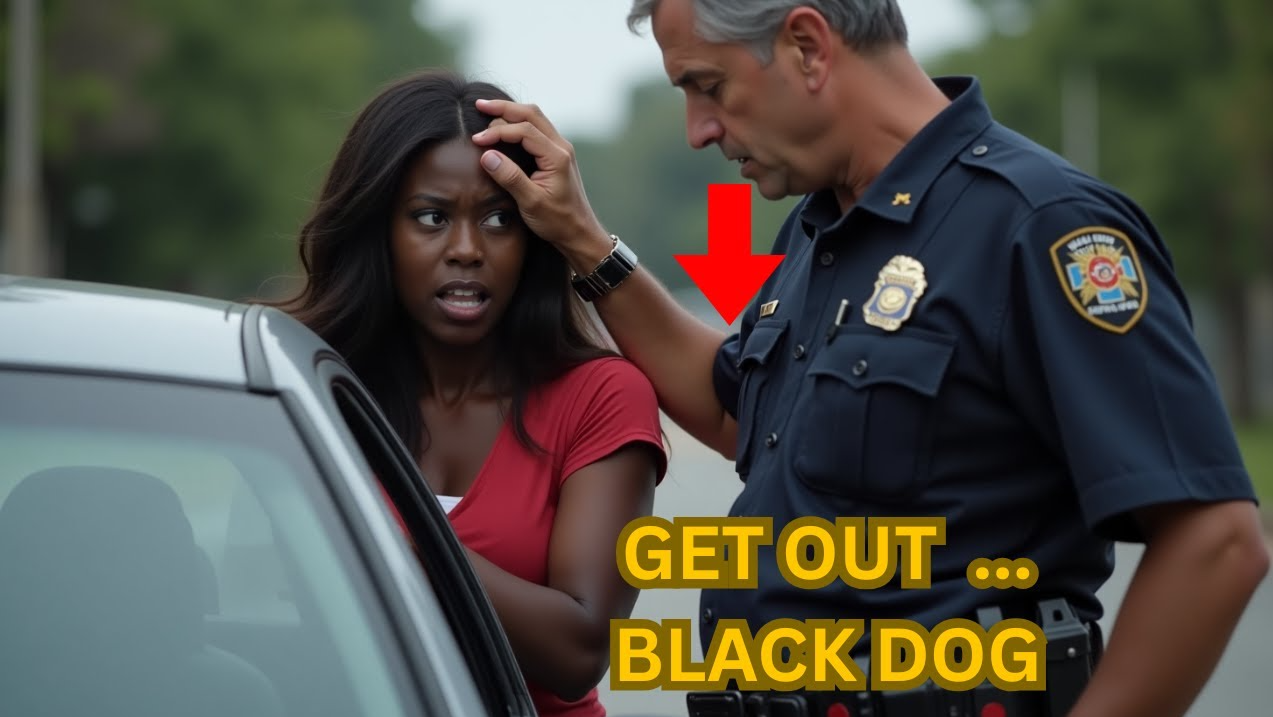Inspirational
Racist Cop Slaps the Wrong Black Judge — What Happens Minutes Later Shocks Everyone

A Black woman in a worn-out coat and headscarf quietly walked into a local police station holding a clipboard. She didn’t speak. She didn’t flinch. But what happened next would shock the entire city.
As she entered, one officer looked at her with disdain. “You lost, ma’am? Welfare office is two blocks down,” he said in a mocking tone. Another officer, equally sarcastic, muttered, “Better search her. She’s probably here to file a false complaint.”
The woman said nothing. She remained calm, simply observing.
Then one of the officers snatched the clipboard from her hands. “What’s this?” he sneered. “Confidential court review? Who do you think you are?”
Still, the woman didn’t respond. She tried to walk past, but the officer blocked her path. His tone turned physical. “You don’t strut in here like you own the place,” he barked—and then, without warning, slapped her across the face in front of everyone. The room fell silent as civilians gasped.
Laughing, the officer said, “You’ll thank me for that later, Auntie.”
She stared at him—no fear, just cold silence.
Moments later, the police chief walked in. Middle-aged, dismissive, he asked, “What’s the fuss here?”
The officer replied, “She was loitering. Got smart with me.”
“Book her for interference,” the chief ordered.
But just as the cuffs were about to click, the woman calmly said, “Are you sure that’s your final decision?”
Everyone in the room froze.
“What did you say?” the chief asked.
She slowly reached into her coat and pulled out a black leather ID. On it: the seal of the federal judiciary. Supreme Court Special Investigations. Her name: Judge Gloria Miles.
The room went completely silent.
The chief, now stammering, asked, “Wait—you’re a judge?”
She looked him in the eye. “I’m the lead on a nationwide corruption probe, and I chose this station for a reason.”
Without another word, she walked past them. No one moved to stop her.
To a civilian nearby, she whispered, “Don’t worry. I saw everything.”
The next day in court, those same officers sat in handcuffs.
The prosecutor spoke clearly: “Your Honor, we request no bail. The officer assaulted a federal judge and tampered with station records.”
The defense lawyer, visibly shaken, said, “We didn’t know who she was.”
From the bench, now robed, Judge Gloria responded, “Your ignorance is not my problem. Your actions are.”
Gasps rippled through the courtroom.
Flashbacks revealed everything Judge Gloria preparing secretly, reviewing complaints, observing quietly for months. Undercover agents posing as janitors, civilians, and clerks had been helping her gather evidence. She had seen it all: the mocking of victims, the erasing of footage, the framing of innocent young men.
Now it was their turn.
As the corrupt officers were led to prison vans, families cried in the gallery. Outside, protesters cheered. “Justice for all! Thank you, Judge Miles!” signs read.
Later, standing atop the courthouse stairs, reporters asked why she had gone undercover.
“Because justice doesn’t wear robes,” she said. “It walks quietly… until it strikes.”
She never raised her voice. She never made threats. She simply watched, waited—and brought them down with just seven quiet words:
“Are you sure that’s your final decision?”
Justice had arrived. And it didn’t knock. It broke the door down.
